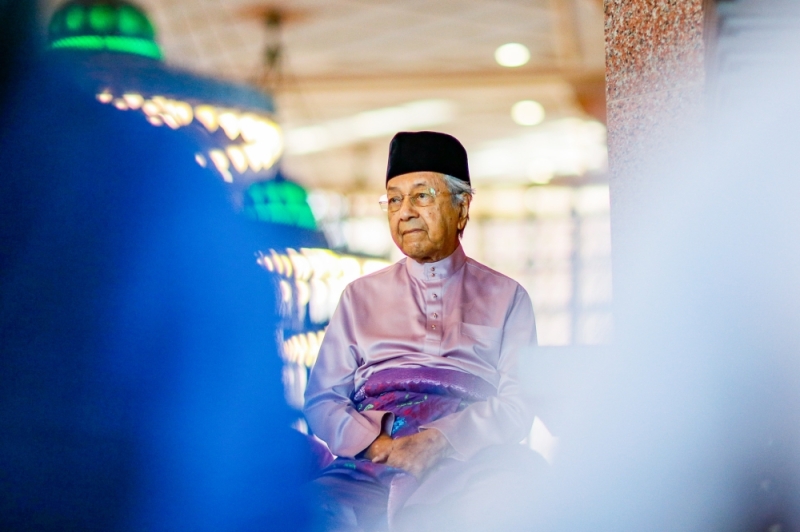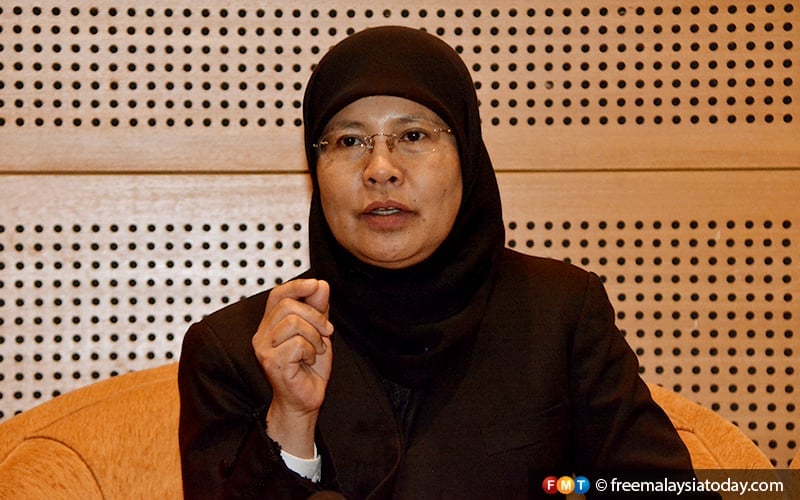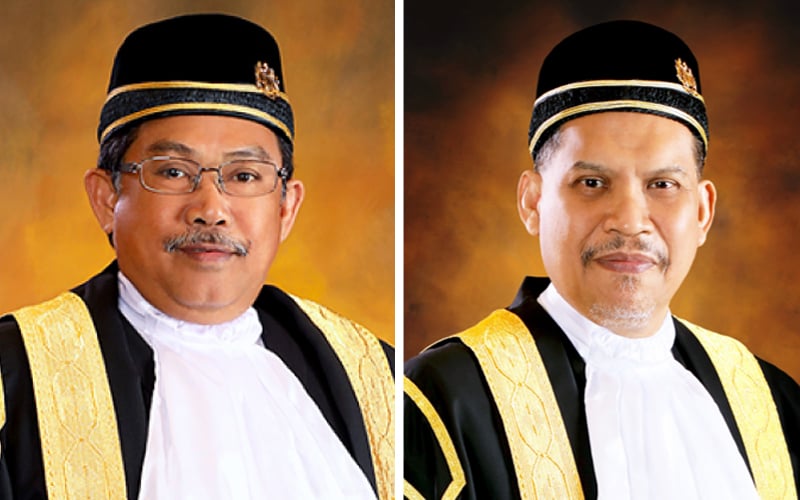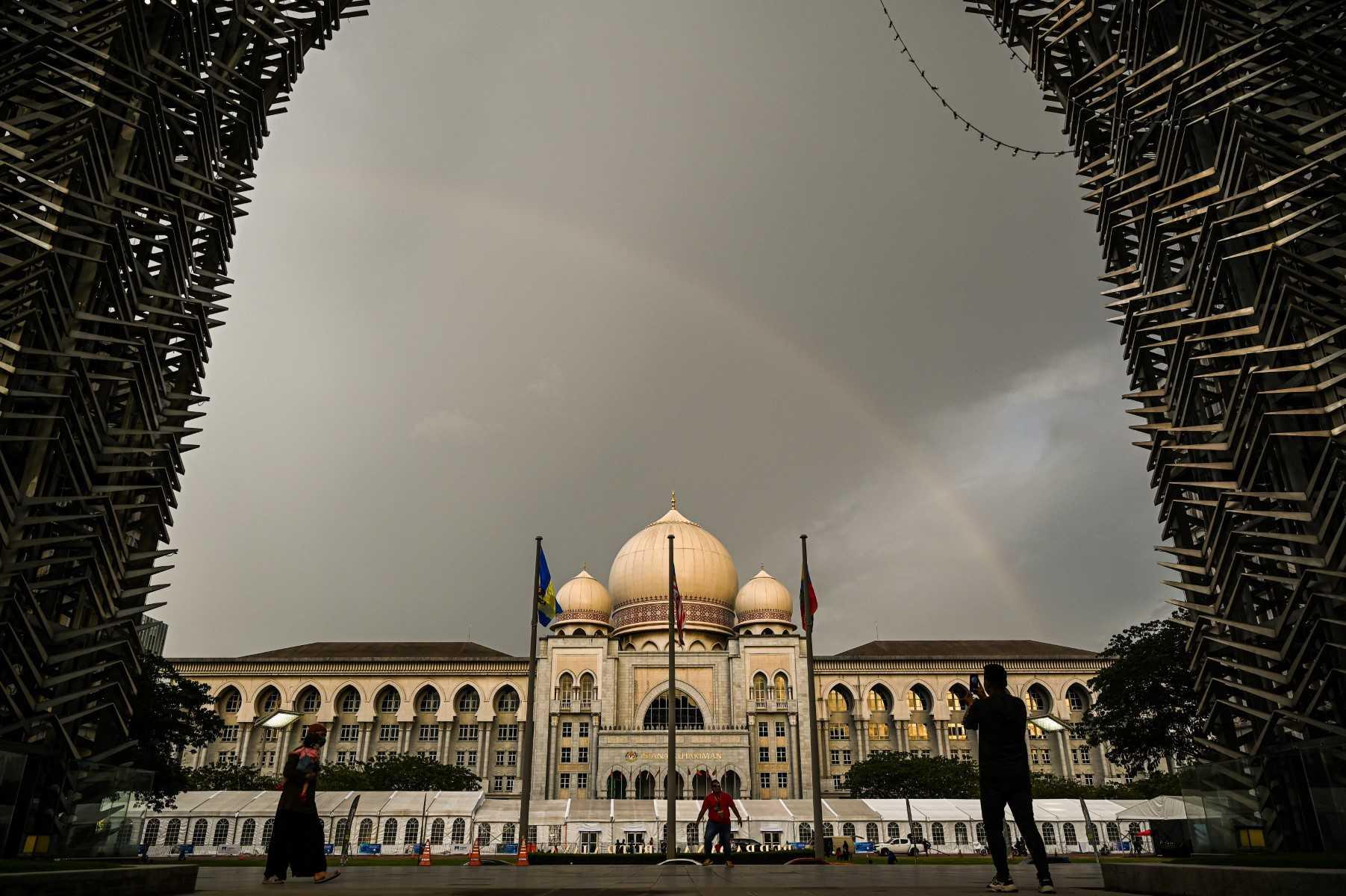Media Statement – 5/10/2023
Will Mahathir Get A Fair Trial Against Prime Minister Anwar Ibrahim When It Is Before A Judicial Commissioner, and not a Judge? Time to Abolish Judicial Commissioners.
Judicial Commissioners do not have Security of Tenure until retirement, a much-needed safeguard for Independence of Judges, and who will only become Judges when the Prime Minister decides so
MADPET(Malaysians Against Death Penalty and Torture) is concerned about the independence of Judicial Commissioners, as they, unlike Judges, do not have the security of tenure, and ultimately if and when they are appointed as Judges, they ‘shall be appointed by the Yang di-Pertuan Agong, acting on the advice of the Prime Minister’ – which means King shall appoint as advised by the Prime Minister. There is an obligation of consultation by the Prime Minister of different parties depending on position of judges, but then there is no obligation on the Prime Minister to follow the views of others, even the recommendation of the Judicial Appointments Commission.
Recently, it was reported that ‘Former prime minister Tun Dr Mahathir Mohamad today failed to get the High Court’s permission to obtain certain documents that purportedly support his RM150 million defamation lawsuit against incumbent Prime Minister Datuk Seri Anwar Ibrahim.’ (Malay Mail, 4/10/2023). The judge in that case was ‘Judicial Commissioner Zaharah Hussain’.
Given that Anwar Ibrahim is the present Prime Minister, would any Judicial Commissioner not worry about offending him and/or at risk not being appointed a Judge or having their generally 2 year contract as Judicial Commissioner extended?
Zaharah Hussain herself may be a good Judge, not affected by any such consideration, and may perform her functions as a ‘judge’ without fear or favour, but the concern is public perception of the independence of these Judicial Commissioners. The concern is about the fairness of such trial, when one of the parties is Anwar Ibrahim, who is the current Prime Minister.
Judicial Commissioners came into being after June 1994
Rather than amending the Federal Constitution, to increase the number of judges of the High Court, the Federal Constitution was amended in June 1994 to introduce Judicial Commissioners who according to Article 122AB(1) states, amongst others, that ‘…the Yang di-Pertuan Agong acting on the advice of the Prime Minister, after consulting the Chief Justice of the Federal Court, may by order appoint to be judicial commissioner for such period or such purposes as may be specified in the order any person qualified for appointment as a judge of a High Court; and the person so appointed shall have power to perform such functions of a judge of the High Court…’.
What should have been done was to simply increase the number of Judges, so that all Judges, after appointment by the King, will enjoy the safeguards to protect the independence of judges, especially the security of tenure right up to retirement age of 66.
Now, persons qualified to be Judges, are appointed generally as Judicial Commissioners for a term of 2 years, and this contract can be extended from time to time.
The late Raja Aziz Addruse, a prominent lawyer and former Malaysian Bar President, in his article ‘Judicial Appointments : Who has the Last Say’, said ‘…Given that he is a judge ‘on trial’ during his ‘probation’ period, and without any security of tenure, the ability of a judicial commissioner to be independent and not to be influenced by personal consideration in making judicial decisions, is questionable…’ ‘.
Judges should be appointed directly, without having to go through any ‘probation’ or ‘trial period’ as Judicial Commissioners, and on appointment, Judges must immediately enjoy security of tenure, where the end date must be their fixed retirement age. Some Judicial Commissioners may become Judges fast even before 2 years have lapsed, others much later and some may even never get appointed.
It must be pointed out also be pointed out that “…At least five Judicial Commissioners (JCs) were not elevated to High Court Judges over the last five years because they failed to meet the criteria of the Judicial Appointments Commission (JAC).Chief Justice Arifin Zakaria, who is also JAC chairman, declined to offer more specific reasons why the judges on probation failed to make High Court judge….Arifin said the JAC met once a month to evaluate the JCs who were on probation for two years.’ (FMT News, 27/3/2017).
It is best that the Judicial Appointments Commission makes a thorough evaluation of persons to be appointed, before the appointment. Judges or Judicial Commissioners should never be treated as a fresh employee by forcing them to go through ‘probation’ – they should be directly appointed as Judges.
Prime Ministers Role in Appointment/Elevation of Judges Must Be Removed
Pursuant to the Judicial Appointments Commission Act 2009 (Act 695), the Commission submits recommendations to the Prime Minister, who may follow the recommendations or not.
A task force in October 2022, alleged that 4 individuals appointed to the top judicial posts in July 2018 differed from those selected by the Judicial Appointment Commission (JAC).
On 17/1/2023, there were judicial appointments, including 6 Court of Appeal Judges and 11 High Court Judges, but the question that remains unanswered was did Prime Minister Anwar Ibrahim follow the recommendations of the Judicial Appointments Commission or not. In June 2023, 2 Court of Appeal Judges were appointed.
Given the role of the Prime Minister in the appointment of Judicial Commissioners and Judges, would the possibility of ‘worry about appointment and elevation’ affect Judicial Commissioners when it comes to cases involving the Prime Minister, Minister and government impact the independence of judges, more so Judicial Commissioners. Judges may also be affected, but so much lesser that Judicial Commissioners as they have security of tenure until retirement.
Chief Justice Tengku Maimun Tuan Mat, on behalf of the judiciary has proposed that provisions in the Federal Constitution be amended to remove executive involvement in the appointment of judges.(FMT, 9/1/2023). In November 2022, the Conference of Rulers today proposed the removal of the prime minister's power to appoint five representatives to the nine-member Judicial Appointments Commission (JAC), the body which proposes candidates to be made judges in the superior courts.(Malaysia Now, 30/11/2022). In 2018, the Malaysian Bar’s then president George Varughese proposed that the government carry out reforms on the judiciary by setting up an independent JAC under the Federal Constitution that will be tasked with making “recommendations directly to the Yang di-Pertuan Agong”.
MADPET call for the abolition of Judicial Commissioners, and that all current Judicial Commissioners be forthwith appointed Judges;
MADPET states that pending abolition of Judicial Commissioners, it is best that it is Judges, not Judicial Commissioners, that hear cases involving the Prime Minister, government and government linked entities/persons;
MADPET calls for the immediate amendment of the Federal Constitution and the Judicial Appointments Commission Act 2009, to remove the Prime Minister from having any role in the selection, appointment and transfer of Judges. What is best is that the King acts on the advice of the Judicial Appointments Commission. The delay in bringing about the amendments to the Federal Constitution and the Judicial Appointments Commission Act is disturbing, even after the Conference of Rulers called for it last November.
Charles Hector
For and on behalf of MADPET(Malaysians Against Death Penalty and Torture)
Some earlier related posts:-
Worker's probation 3 months, High Court judges on 'probation' for 2-5 years? Appoint High Court judges - no more 'on probation'..
UN Basic Principles on the Independence of the Judiciary - Chief Justice and imminent 'judicial crisis'?
Sri Ram & Ramkarpal wrong? Anyone, including Daim, have the right to ask CJ or President COA to resign?
High Court dismisses Dr Mahathir’s bid for documents in RM150m defamation suit against Anwar

KUALA LUMPUR, Oct 2 — Former prime minister Tun Dr Mahathir Mohamad today failed to get the High Court’s permission to obtain certain documents that purportedly support his RM150 million defamation lawsuit against incumbent Prime Minister Datuk Seri Anwar Ibrahim.
Dr Mahathir had previously filed a discovery application that would compel Anwar to show any evidence supporting the latter’s nepotism and cronyism allegations against the 98-year-old.
Dr Mahathir wanted Anwar to produce documents on an alleged bailout of Konsortium Perkapalan Bhd (KPB) by Petronas and Malaysia International Shipping Corporation (MISC) in 1997.
Judicial Commissioner Zaharah Hussain ruled today that there are no direct allusions or references to the documents requested in Anwar’s amended defence filing, contrary to what was claimed to have happened in the past.
Lawyer Muhammad Rafique Rashid Ali, representing Dr Mahathir, confirmed with Malay Mail of today’s civil proceeding outcome when contacted this afternoon.
Rafique explained that to the court, the alleged event — as raised in Anwar’s amended statement of defence – was one that happened a long time ago and there are no direct allusions or references to the documents requested by Dr Mahathir.
Rafique said that Zaharah also ruled that Anwar can and ought to produce the documents to support his defence during the pre-trial case management stage.
She also ordered Dr Mahathir to pay RM2,000 in cost to Anwar, the lawyer said.
The court in Shah Alam, Selangor has also fixed November 3 for further case management for parties to inform of any other interlocutory applications they had or would be filing.
Dr Mahathir filed the RM150 million defamation suit against Anwar in May over claims that the prime minister, during a speech made during the PKR congress in March, said that “a leader of 22 years and 22 months” had enriched his own family during their time in office.
On June 14, Anwar filed his statement of defence, stating he is prepared to prove the allegations’ veracity in court.
The 10th PM had cited multiple alleged bail-outs of companies linked to Dr Mahathir’s children, as well as purported cronyism and nepotism during the plaintiff’s first stint as Malaysia’s fourth prime minister in the 1990s.
Through his subsequent reply, Dr Mahathir countered that Anwar is a pathological liar who has never furnished proof of the wealth allegations.
Dr Mahathir said Anwar’s alleged defamatory statements were intended to dent his image among members of the public as they were viewed and heard by a wide spectrum of people.
He also wants Anwar to extend an unconditional apology and undertake not to repeat the same or similar statements in the future.
In July, Dr Mahathir made a formal application against Anwar to show documents to support his claims of nepotism and cronyism against the latter. - Malay Mail, 2/10/2023
Remove executive’s role in judges’ appointment, says Chief Justice
Chief Justice Tengku Maimun Tuan Mat says there must be a meaningful engagement with all stakeholders to move forward.

PUTRAJAYA: The judiciary has proposed that provisions in the Federal Constitution be amended to remove executive involvement in the appointment of judges.
This was revealed by Chief Justice Tengku Maimun Tuan Mat, who said the suggestion was given by the judiciary to the task force probing former attorney-general Tommy Thomas’ book, “My Story: Justice In The Wilderness”.
One of the suggestions was that improvements should be made to the process of appointing judges.
“We suggested that there should be an amendment to the constitution to give effect to our proposal,” she told reporters after officiating a ceremony to open the legal year.
Tengku Maimun said the judiciary was collectively supportive of the task force’s proposal to the government.
“That is our general stand to improve the judiciary or the Judicial Appointments Commission (JAC). However, there must be meaningful engagement with all stakeholders to move forward,” she said.
Article 122B (1) states that judges and all administrative position holders shall be appointed by the Yang di-Pertuan Agong, acting on the advice of the prime minister, after consultation with the Conference of Rulers.
However, Section 27 of the Judicial Appointments Commission Act 2009 states that the prime minister may request for two additional names for consideration with respect to any vacancy to the offices of the Chief Justice, Court of Appeal President, Chief Judges of Malaya, and Sabah and Sarawak, and on the panels of the Federal Court and the Court of Appeal.
Tengku Maimun said any amendment to the 2009 Act would likely first require the Federal Constitution itself to be amended.
“We will not reach the objective of appointing judges without executive involvement, if the current provision (which requires executive consultation) remains,” she added.
She said the prevailing public perception of executive involvement in the appointment of judges must also be removed.
Tengku Maimun said she had also called for the new government to set up an independent judicial academy to cater to the training needs of superior court judges.
Last year the top judge announced that the government approved 25 acres of land in Nilai, Negeri Sembilan, alongside an existing magistrates’ court for the academy.
“In principle, the previous government had approved (the proposal), but when the final decision was communicated to us, they said judges should go to the judicial and legal service officers’ training institute due to a costing issue.
“As a matter of principle, judges should not be going there. Judges are not government officers,” Tengku Maimun said.
She said judges in the past never attended any course at the institute located in Bandar Baru Bangi.
“The person who issued the statement lacked understanding of the law and procedure,” she added.
Death threats
Meanwhile, sharing a personal experience in her role as Chief Justice, Tengku Maimun said she had been on the receiving end of death threats when presiding over cases involving certain personalities.
“In cases involving certain personalities, the support or criticism is extreme. People generally know that I myself have received death threats before.
“Whether those were serious threats or not is another question, but it has reached that level,” she said, according to Bernama.
When it comes to high-profile individuals, she said the comments directed at the judiciary were not constructive but excessive, one-sided and politically-motivated.
“I hope the people out there understand the structure of the country’s legal process before issuing any statements which show their lack of understanding.”
In August last year, the media quoted police as saying they had received reports of threats made against Tengku Maimun on social media and would be taking action against anyone found abusing such platforms to undermine security.
The Conference of Rulers today proposed the removal of the prime minister's power to appoint five representatives to the nine-member Judicial Appointments Commission (JAC), the body which proposes candidates to be made judges in the superior courts.
This followed a meeting by the rulers chaired by Negeri Sembilan's Tuanku Muhriz Tuanku Munawir, held for two days at Istana Negara beginning yesterday.
In its statement, the conference said the JAC in its present composition had weaknesses, adding that its membership was critical to ensure that only those with intergrity are appointed to judicial posts.
Tuanku Muhriz said a more balanced membership was needed so that appointments would not be biased towards any parties.
"To ensure the independence of JAC in carrying out its responsibilities, I propose that the appointment of its five members should not be made by the prime minister.
"Instead it should be given to other institutions such as the Malaysian Bar Council, the Sabah Law Society, the Sarawak Bar Association and the Parliamentary Select Committee," he said.
Tuanku Muhriz also called for JAC's structure to be reevaluated through discussions with the relevant institutions and stakeholders.
"When all this is implemented, I am confident JAC will be able to carry out its responsibilities more effectively, and choose and appoint only those individuals who have a noble character, and are transparent and fair, to become judges in Malaysia."
JAC was set up in 2009 to ensure an unbiased selection of judges for the consideration of the prime minister.
Critics have however questioned the provision allowing the prime minister to appoint the majority of the commission's members, as well as his power to remove them, saying it smacks of political patronage in the judiciary.Malaysia Now, 30/11/2022
Abdul Karim, Abu Bakar appointed Federal Court judges, say sources
Five judges promoted to Court of Appeal, 10 judicial commissioners made High Court judges, and six new JCs appointed.

PETALING JAYA: Court of Appeal judges Abdul Karim Abdul Jalil and Abu Bakar Jais will be elevated to the Federal Court, filling two of four vacant slots in the apex court, sources said.
Karim is the second most senior judge, while Abu Bakar is ranked number seven among 26 Court of Appeal judges currently serving.
Karim was appointed a Judicial Commissioner on Aug 1, 2004 and confirmed as a High Court judge on July 28, 2006.
He was promoted to the Court of Appeal on Nov 26, 2018.
Meanwhile, Abu Bakar was appointed Judicial Commissioner on July 8, 2013, and made a High Court judge on March 21, 2016.
He was elevated to the Court of Appeal on Dec 5, 2019.
There are currently 11 sitting Federal Court judges available to hear the whole gamut of criminal and civil appeals as well as motions and other applications.
They include Chief Justice Tengku Maimun Tuan Mat, Court of Appeal president Abang Iskandar Abang Hashim, Chief Judge of the High Court of Malaya Zabidin Diah, and Chief Judge of Sabah and Sarawak Rahman Sebli.
The source also told FMT that five High Court judges – Justices Azmi Ariffin, Azizul Azmi Adnan, Azahari Kamal Ramli, SM Komathy and Choo Kah Siang – will be promoted to the Court of Appeal.
Meanwhile, 10 Judicial Commissioners are set to be confirmed as High Court judges, according to sources.
The 10 are Nurulhuda Nur’aini Mohamad Nor, Norliza Othman, Hasbullah Adam, Shamsulbahri Ibrahim, Roslan Mat Nor, Julia Ibrahim, Arief Emran Arifin, John Lee Kien How @ Mohd Johan Lee, Adlin Abdul Majid and Abazafree Abbas.
The source also revealed that six new Judicial Commisioners will be appointed. They are made up of lawyers and those currently serving in the courts and the Attorney-General’s Chambers.
Under Article 122B of the Federal Constitution, the Yang di-Pertuan Agong, acting on the advice of the prime minister, appoints judges after consulting with the Conference of Rulers.
Candidates are proposed to the prime minister by the Judicial Appointments Commission (JAC).
The selection criteria include seniority, integrity, competency, experience, the submission of written judgments on time, and good writing skills.
All the Federal Court, Court of Appeal and High Court judges will be at Istana Negara tomorrow to receive their appointment letters from the Yang di-Pertuan Agong.
Karim and Abu Bakar will take their oath of office before
Tengku Maimun, the five Court of Appeal judges before Abang Iskandar and
the 10 High Court judges before Zabidin.- FMT, 12/6/2023






No comments:
Post a Comment